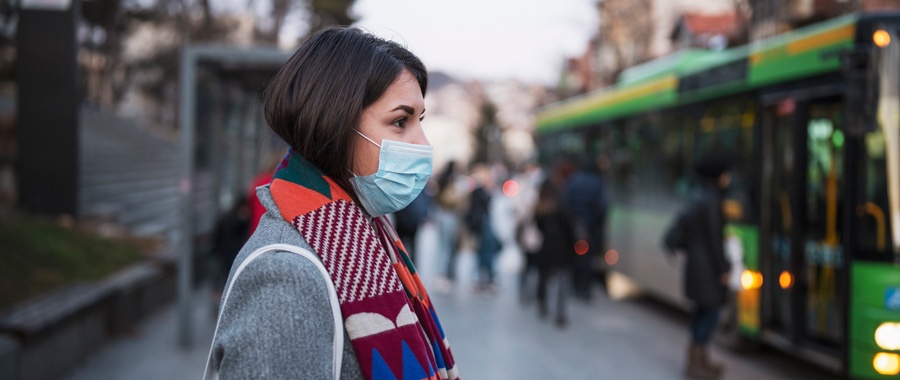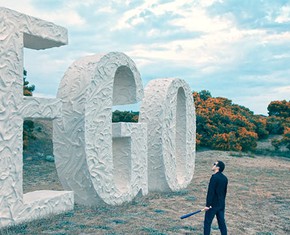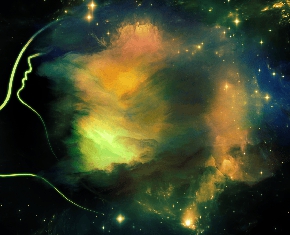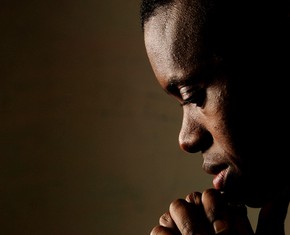The views expressed in our content reflect individual perspectives and do not represent the authoritative views of the Baha'i Faith.
You’ve probably seen it on Facebook – a short video of two women in a supermarket clawing and screaming at each other for a package of toilet paper.
Many such sad videos have circulated on social media and in the news since the outbreak of the coronavirus.
These women, obviously self-interested, put their own needs above those of their fellow human beings. The coronavirus outbreak has frightened many of us, and as a result people around the world have hoarded toilet paper, sanitation supplies, water, etc.
The dramatic irony of this tale: in fact, these individuals unconsciously hurt themselves in their selfish pursuits. This reminded me of a term I remembered learning about in college known as the “Tragedy of the Commons.”
The Tragedy of the Commons refers to a situation where individuals act solely out of their own interests, disregarding the common good – which inevitably leads to a spoiling or depletion of resources.
The story of the Grand Banks fishing grounds gives us a perfect example of the Tragedy of the Commons. For centuries, the Grand Banks fishing grounds off the coast of Newfoundland was known for its plentiful fish supply, which attracted explorers and fishermen from all around. However, the 1960’s-1970’s brought new technology which allowed fishing boats to capture greater quantities of cod than ever before. Acting out of their own economic interests, fisherman continued to catch huge amounts of cod despite the possibility of ecological destruction. Consequently, the fish population dropped and the cod population couldn’t replenish itself during the next few seasons. Unfortunately, the cod stocks experienced irreparable damage, and will likely never recover due to overfishing.
Examples like this one abound, causing environmental destruction which literally undermines our entire ecosystem.
So, you might ask, what do fish have to do with the coronavirus?
Due to unnecessary fear and panic, individuals are buying up toilet paper, sanitation wipes and sprays, water, etc. creating a shortage for everyone else. Those people who are denied access to personal care and disinfecting supplies will be at a higher risk for illness which may allow disease to spread. Therefore, it incumbent upon all of us to act in the best interests of the entire planet. Author John Donne once said, “No man is an island,” which means we all need each other due to the interconnectedness of our common humanity.
The Baha’i writings emphasize the need for unity in a world full of conflict and discord: “Let your vision be world-embracing rather than confined to your own self.” (Baha’u’llah, Tablets of Baha’u’llah).
Our individual welfare, then, is connected with the welfare of the whole of humanity:
The welfare of any segment of humanity is inextricably bound up with the welfare of the whole. Humanity’s collective life suffers when any one group thinks of its own well-being in isolation from that of its neighbours or pursues economic gain without regard for how the natural environment, which provides sustenance for all, is affected. A stubborn obstruction, then, stands in the way of meaningful social progress: time and again, avarice and self-interest prevail at the expense of the common good. – The Universal House of Justice, to the Baha’is of the World, 1 March 2017.
The principle of the Golden Rule, shared by all of the major world religions, stresses the importance of treating others in the same way you would want to be treated – which creates a civilization based on reciprocity.
God has given us these teachings for our own benefit, and when we act out of our own selfish desires and needs we are the ones who will suffer the most. Whatever we put out into the world will eventually return to us, therefore now is the time to double our efforts and be extra kind, loving, and compassionate to ourselves and others. So please, if you see someone else in need, share your resources with them. Ultimately, it may save your life.
















Comments
Sign in or create an account
Continue with Googleor